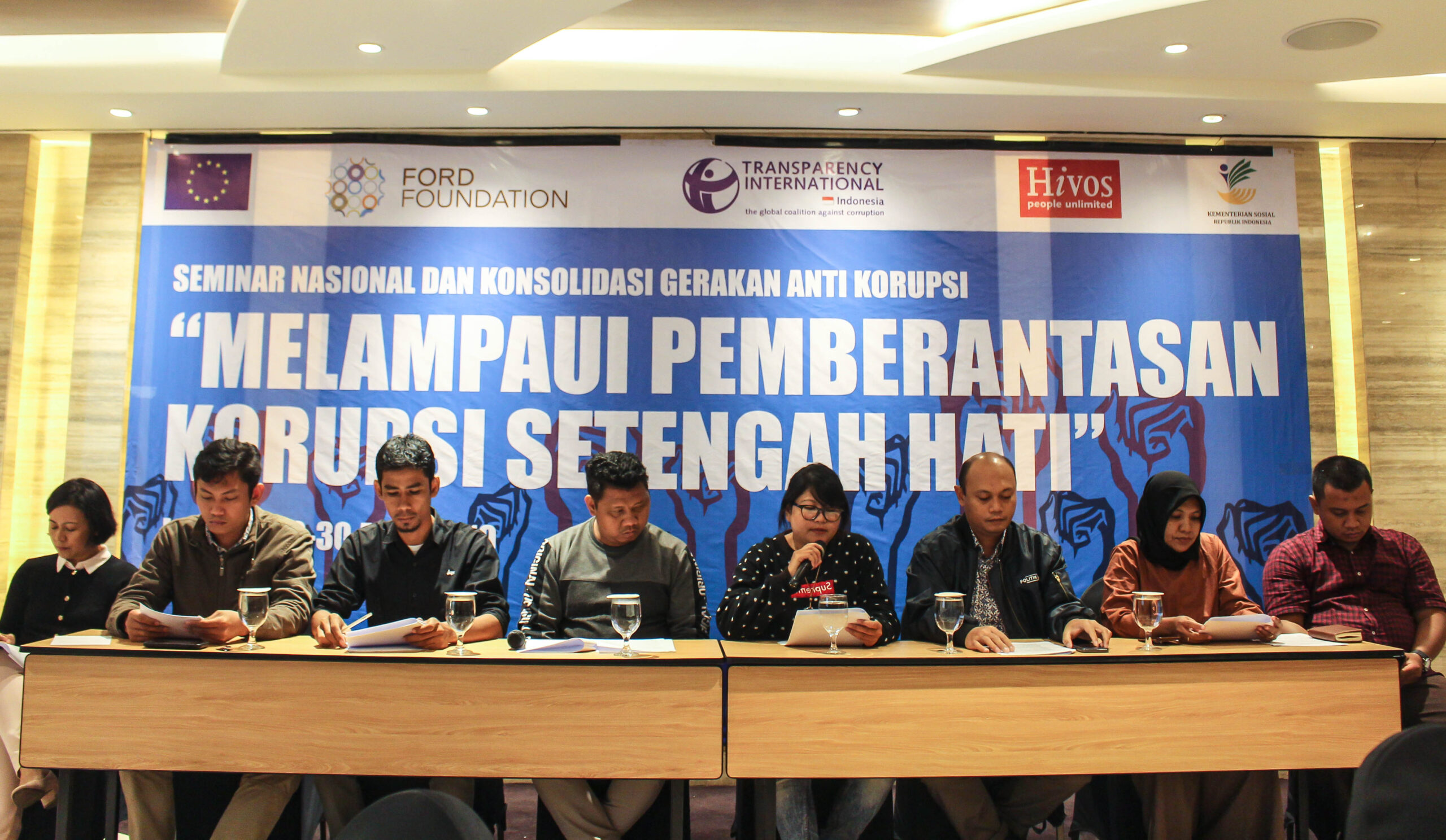Combating Corruption Post General Election: Indonesian Civil Society’s Recommendations for the Elected Government
The general election in Indonesia has just ended and people are now waiting for the official results from the General Election Commission (KPU). For the anti-corruption movement, the general election posited an opportunity to elect leaders who can lead future development programs transparently and accountably. However, it has also been identified as the time when potential corruptive behaviors tend to increase. With Indonesia scored at 38 in the 2018 Corruption Perception Index (CPI), effective strategies are needed to get the country out of a decadence in anti-corruption initiatives.
As a response, Transparency International Indonesia (TII), supported by Hivos South East Asia and the European Union, held a national anti-corruption seminar and civil society consolidation in Jakarta on 29-30 April 2019. Raising the theme of democracy, corruption, and oligarchy, the event was aimed to re-strengthen the anti-corruption movement’s goal and objectives, and formulate legal, political, and social strategies needed to safeguard the elected government’s development program for the next five years.
“It is no longer the time for us to debate over which presidential candidate to vote for. It is time to present strategic and concrete recommendations to support the development program of the elected government,” said Muhammad Ilham, Hivos SEA Program Development Manager of Freedom and Accountability, opening the event.
Among the speakers were the Commission on the Eradication of Corruption (KPK) Commissioner, Laode M. Syarif, The National Procurement Agency (LKPP) Director of Legal Affairs, Setya Budi Arijanta, The University of Airlangga Chief of the Conflict of Interest Prevention and Control Committee, Iman Prihandono, and TII Secretary General, Dadang Trisasongko.
The Top Three Sectors of Corruption
Through thematic discussions, the Indonesian Civil Society Coalition, which consists of 28 civil society organizations (CSO), identified the natural resources, public procurement, and law enforcement as the top three sectors laden with corruption cases. Analysis on the cases showed that corruptions in the three sectors incurred most losses for the State finances and had direct impact to the society. For example, in 2016, KPK stated that the potential loss in the mineral and coal sectors was estimated to be over IDR 42.2 trillion from uncollected Non-Tax Revenue (PNBP) and around IDR 133.6 trillion from unreported coal export transactions.
The Civil Society’s Recommendations
To counter the high-prevalence of corruption in the three sectors, the Indonesian Civil Society Coalition came up with priority program recommendations for each sector. Among the recommendations was a request for the government to revise the regulations on transparency in natural resources sector.
“Citizen participation should exist in every mining process value chain, with positive affirmations for the involvement of women, indigenous people, and other vulnerable group” said Leni Marlinda, a researcher from Garut Government Watch, representing the coalition.
Other recommendations include the push for the revision of the Presidential Regulations on Public Procurement, the push for information disclosure on beneficial ownership and track records of public procurement providers, and making the eradication of corruption as an indicator of achievement for the police force and prosecutor’s office.
“We will bring this [recommendation]. We will wait until 22 May to meet the appointed team to ensure that their program is included in the development program,” said Dadang Trisasongko. “We will also facilitate [the elected government], and push them to work in more intensive coordination with KPK.”
The complete recommendation is released as a joint-communique document that can be accessed here.





